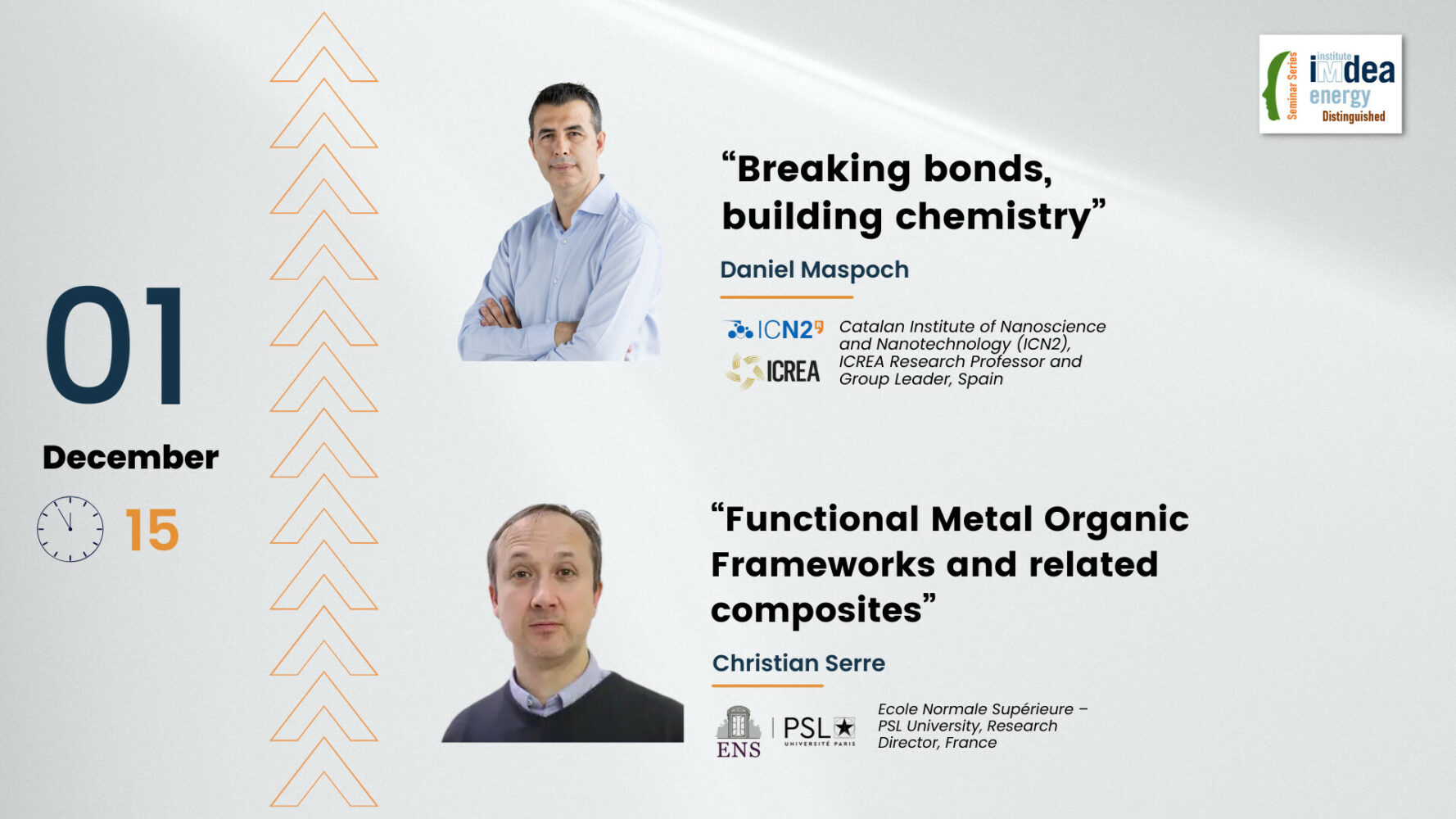Distinguished seminar «Breaking bonds, building chemistry» & «Functional Metal Organic Frameworks and related composites»

Bio
Daniel Maspoch
Dr. Daniel Maspoch is an ICREA Research Professor and Group Leader at the Catalan Institute of Nanoscience and Nanotechnology (ICN2), Spain. His research interests encompass clip-off chemistry, reticular chemistry and materials, and delivery systems. He has authored over 220 scientific articles, filed 16 patents (four of which have been licensed), signed four technology transfer contracts, and developed three technologies currently available on the market. He is also the co-founder of the spin-off company Ahead Therapeutics.
In recognition of his contributions to chemistry and materials science, Dr. Maspoch has received several prestigious awards and grants, including ERC Consolidator, Proof-of-Concept (x2), and Advanced Grants, the Rei Jaume I Award, and the Hermanos Elhuyar–Hans Goldschmidt Lecture Award from the German Chemical Society (GDCh). He was recently appointed Corresponding Academician of the Royal Spanish Academy of Science (RAC).
Abstract
Breaking Bonds, Building Chemistry
Historically, innovations in synthetic methods and chemical reactions have transformed how scientists design and synthesize molecules and materials. Indeed, novel reactions or synthetic strategies not only enable access to previously unattainable structures but also inspire new paradigms for constructing materials that address global social, economic, and industrial challenges.
In this presentation, Dr. Maspoch will introduce the concept and recent advances in Clip-off Chemistry. This approach is based on the design and synthesis of novel molecules and materials with well-defined compositions and structures via bond cleavage within molecular frameworks. Clip-off Chemistry thus represents a new synthetic methodology in which programmed, selective disassembly leads to the formation of new molecules and materials. This molecular disassembly is achieved through chemical reactions; in a first approach, via ozonolysis, which enables the cleavage of organic building blocks or linkers through direct breaking of alkene or alkyne bonds. The talk will present the fundamental principles of Clip-off Chemistry and recent examples of molecules and structures obtained through controlled bond fission in porous reticular materials.
Bio
Christian Serre
Dr. Christian Serre obtained his Ph.D. in Chemistry in 1999 from the University of Versailles, France, under the supervision of Prof. Gérard Férey. After a postdoctoral stay at the CNRS-Rhodia Joint Laboratory in the United States, he became a CNRS Research Scientist at the Lavoisier Institute, Versailles, where he was one of the main discoverers of the well-known MIL-n series of Metal–Organic Frameworks (MOFs).
In 2016, Dr. Serre joined the Ecole Normale Supérieure (ENS) – PSL University, Paris, where he founded a new laboratory dedicated to the design of functional porous materials and related composites for applications in health, the environment, and energy. He has authored more than 470 publications and book chapters and holds 45 patent families. He is also a co-founder of SquairTech, a start-up company focused on indoor air quality solutions.
Dr. Serre has been awarded numerous honors, including the CNRS Bronze Medal, an ERC Grant, the Berthelot Medal, and the “Fondé par l’État” Prize from the French Academy of Sciences. Since 2023, he has been an elected member of the French Academy of Sciences, and since 2025, a member of the European Academy of Sciences.
Abstract
Functional Metal–Organic Frameworks and Related Composites
Metal–Organic Frameworks (MOFs) represent one of the most fascinating classes of porous solids due to their highly versatile structural and chemical features. The 2025 Nobel Prize in Chemistry recognized the field of MOFs for its profound scientific and technological impact. These tunable crystalline micro- or mesoporous solids can be constructed using elements from across the periodic table combined with a vast variety of organic ligands, leading to over 140,000 reported architectures.
While early MOFs suffered from poor stability in moist environments, the development of robust frameworks based on high-valence metal cations and metal(II) azolates has dramatically changed the field. These water-stable MOFs have enabled numerous practical applications, and several have already reached industrial production, including large-scale systems for CO₂ capture from flue gases and air. Start-ups are now advancing additional uses in air purification, heat reallocation, water harvesting, and gas storage.
At ENS–PSL in Paris, Dr. Serre’s group has long been developing robust, scalable, high-valence-based MOFs for diverse applications, ranging from indoor air quality improvement and nanomedicine to hydrogen production and energy-related membranes. This presentation will showcase representative examples of their performance—from lab-scale experiments to real-world testing—with particular focus on scale-up processes, shaping strategies, and techno-economic analyses of production costs.


